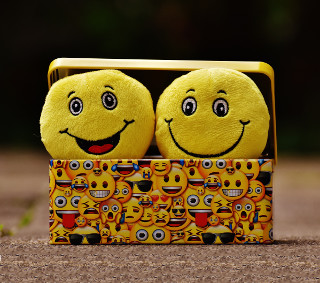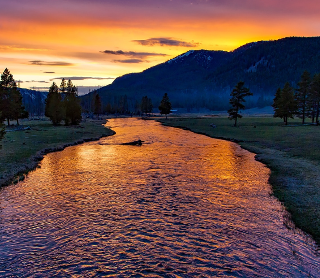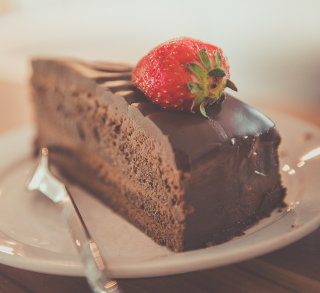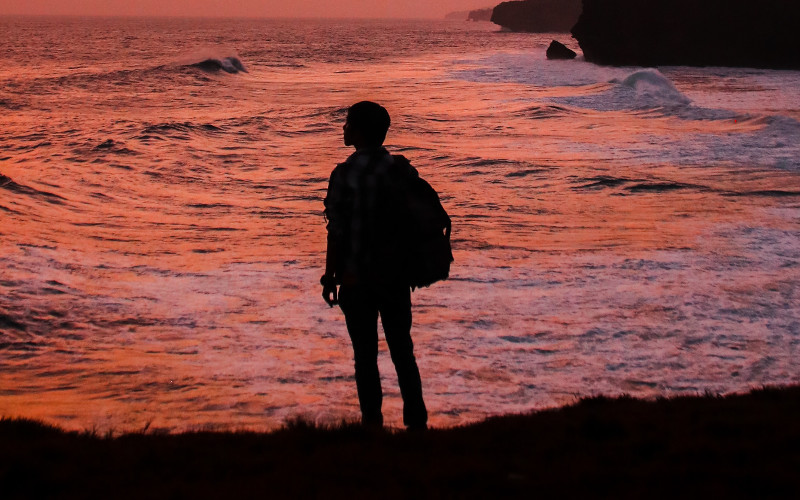Free will is the concept that at any moment in time, we can choose what to do next. That we can decide this for ourselves, and not have this decision made for us by circumstances including other people.
Is there such a thing as free will?
Some say of course it exists; that our innermost, fundamental selves can always choose what we want to do among the possible alternatives.
Others say it’s all determined for us, that the circumstances surrounding us determine our behavior 100%. One thing is for certain; when circumstances work against us, our free will can be buried to the point where is seems like it doesn’t exist anymore.

External circumstances
Geography and weather can easily affect your behavior. If you are driving down a road, and a bridge is out ahead, of course you’re not going to continue driving that way. More commonly, bad weather can interrupt your plans. What might be easy or enjoyable on a sunny day will be difficult, impossible, or counterproductive during a storm.

Another external circumstance, easily more powerful than the previous two together, are the opinions of others.
There are those who have their own ideas of what you should (or should not) be doing, and won’t hesitate to tell you. (Sometimes they won’t tell you what to do directly, but they’ll use a variety of tricks to influence you, while making you believe you yourself decided that. If you think it was your own choice to do something, of course you won’t question it.) Other people’s ideas are perhaps the major thing working against your free will.

Internal circumstances
Closer to your genuine core self are your hormones and emotions. (Some say that hormones and emotions are the same thing.) To twist an old phrase from the 1960’s, “if it feels good, you’re likely to do it”. Our brains’ reward systems are strongly tied to survival and reproduction, and that’s we are drawn strongly in the direction of living long enough to produce children.
What about those who have had severe setbacks in life, enough to make them want to end it all? While I’m not condoning suicide, I do want to point out that there is a conflict: even if you decide that’s what you want, the brain’s reward system works against anything too painful or too scary (and that’s just about everything related to suicide). And many people will say to you, “don’t do it”, further working against anyone choosing this course. (Maybe this means sometimes free will is a bad thing. But I’m not going to be the one to try to answer this question.)
More internal circumstances
Some traits are there with us from the day we were born. “Ah hah!” people will say. “That just proves it’s in our DNA.” But I’ve never been a fan of the idea that “with us from birth” means “it’s genetic”. I myself am a strong believer in reincarnation, and believe that previous lifetime experiences are senior. Personality attributes passed down from your previous self are more significant than anything passed down from your parents’ chromosomes (assuming no outright genetic defects like Down’s or Kleinfelter’s Syndromes.
Let me put it this way: this world is a messed-up place. Could we really have gotten that messed up in just one lifetime? It seems unlikely.
What about nurture? I do believe the way were raised is a major factor in our personalities; but again, I think that previous lifetime memories trump the way we were treated in early childhood.

Finally, we come to habits, which are closer to your genuine core self than anything mentioned previously. As I’m sitting here writing this, I’m munching on candy bars from a bag of candy. (A bad habit, yes, I know.) But it could be worse — I could sit down in front of a television with a fresh bag of candy, and start eating, mindlessly scarfing them down, until I’m surprised to find I’ve eaten the whole bag.
Swimming across a river
Imagine being on one bank of a river, wanting to get to the other side. And since there’s no bridge or ferry available, you decide to swim across. Now the place you want to go to is directly across, but you know the current will pull you downstream. So what do you do? You can angle yourself upstream, and fight against the current, or you can aim straight across, climb out the other side, and walk back to where you wanted to be in the first place. Wanting to cross the river and arriving at a particular spot is free will, choosing how to do it (fight the current or go straight across) is also free will, and even though the current (an external circumstance) will pull you off course, your free will will get you there eventually. As long as you know you have choices, you have free will.
So does free will determine our behavior?
Usually, what we choose to do (free will) and what we feel like doing (emotions or other circumstances) pull us in the same direction — so it really doesn’t matter if free will exists or not, because the results are the same. What happens in that case is we just trundle along, without asking questions. Our free will is “disguised” and that makes it seem like it doesn’t exist.

Some free will thought experiments
There are plenty of times when doing the right thing and doing what feels good now are in opposition. Imagine this: you live alone and you have one piece of cake left. Do you eat it now or save it for later? Later may be the logical choice because the evening is coming and you know you’ll want a snack then. But feeling good is a “now” urge so if you always give in to that urge, you’ll always eat the cake right away. Saving it for later suggests we do have free will.
Another experiment: the next time you have to run to the bathroom to relieve yourself, choose instead to wait two minutes and then go. Being able to fight a “right now” urge also suggests the existence of free will. (As a bonus, I can often just stand there, comfortably, while others around me are all fighting to get into the bathroom for the 8th time that day.)
I call doing things like the above doing what I don’t want to do, a phrase that would just confuse most people. But what I simply mean is I don’t give in to every urge that comes along, to my benefit.
Conclusion
In many people, our free will is buried deep down inside. But it does exist. Bringing it forward and mindfully using it can only make our lives better.
